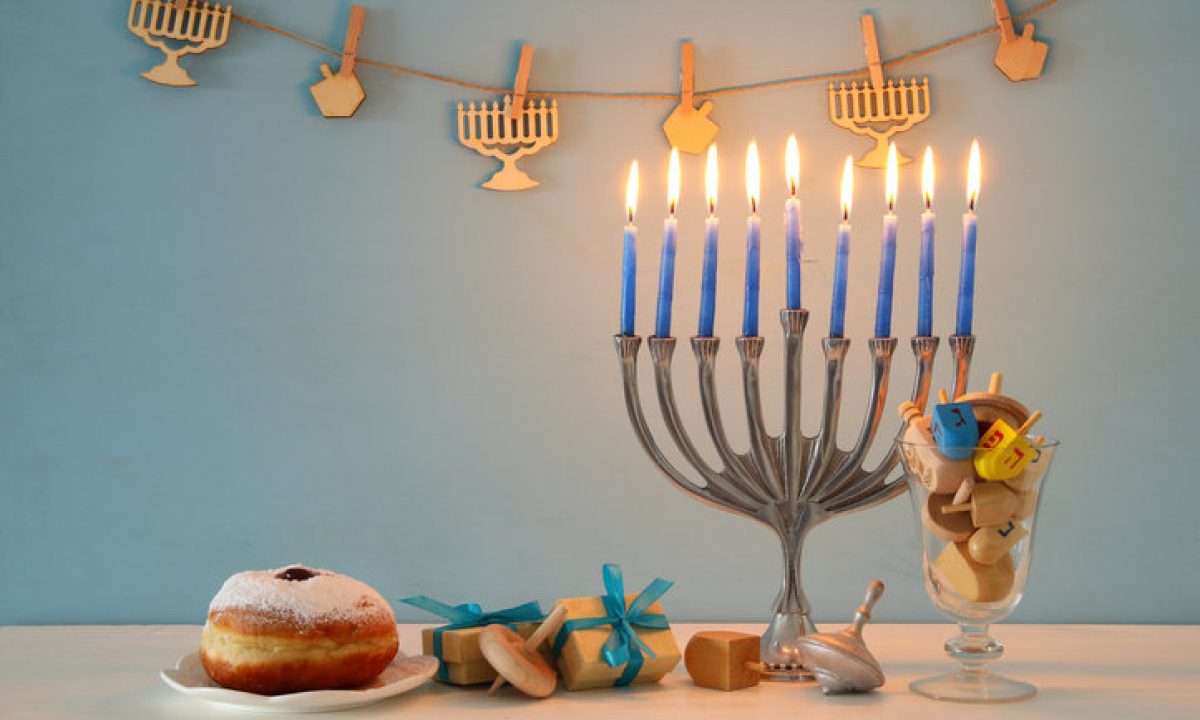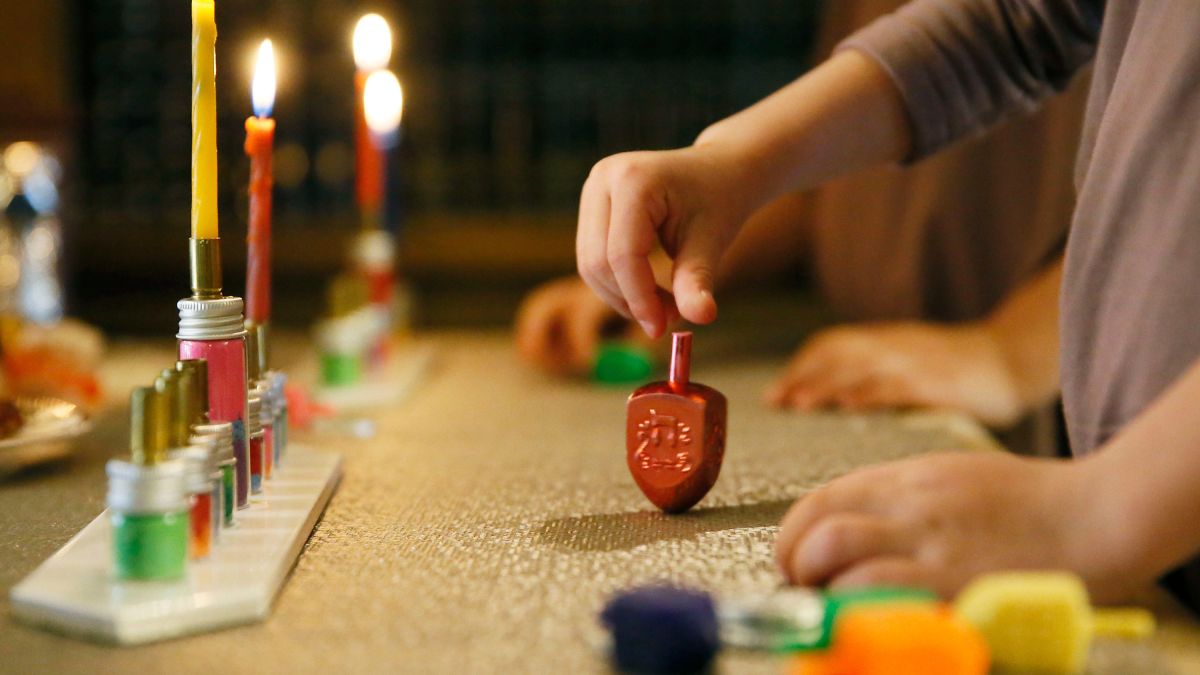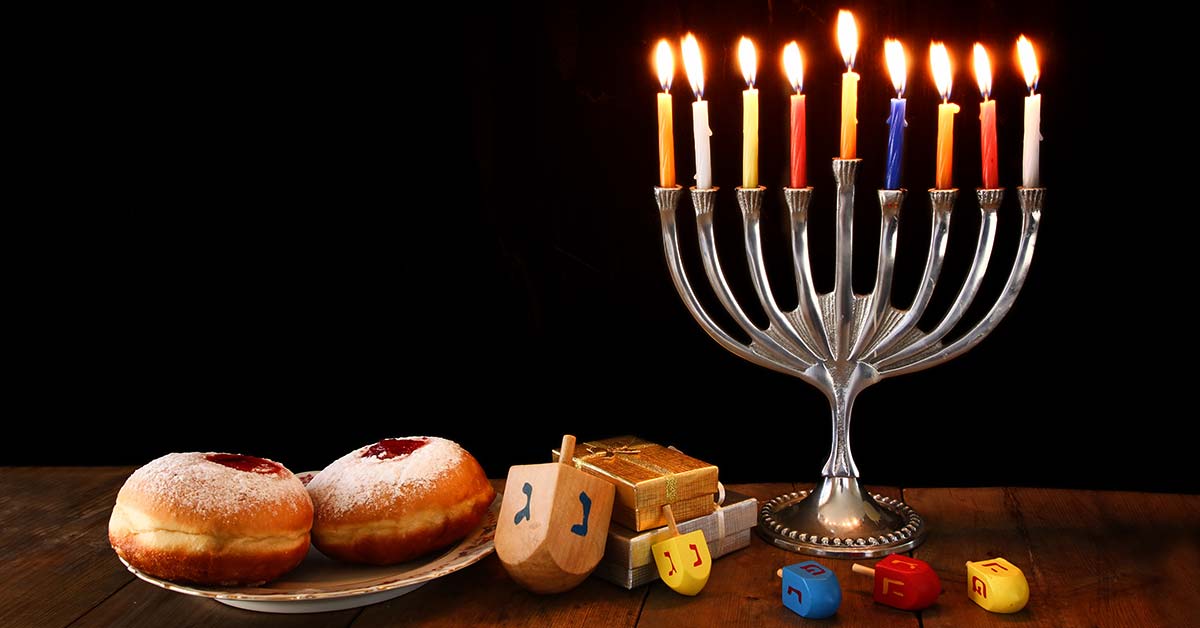Celebrating the Festival of Lights: Hanukkah! When is Hanukkah 2023 2024 and How to Celebrate. Hanukkah, also known as Chanukah, is a joyous Jewish festival that commemorates the rededication of the Second Temple in Jerusalem during the Maccabean Revolt against the Seleucid Empire.
This eight-day celebration is a time for reflection, family gatherings, and the lighting of the menorah. Each year, Hanukkah falls on different dates in the Gregorian calendar, but its significance remains constant as a symbol of hope, freedom, and the triumph of light over darkness.
When is Hanukkah?
Hanukkah is observed for eight nights and days, starting on the 25th day of Kislev according to the Hebrew calendar, which may occur at any time from late November to late December in the Gregorian calendar.

How to Celebrate:
Lighting the Menorah: The central ritual of Hanukkah involves lighting the menorah, an eight-branched candelabrum, each night of the festival. A ninth candle, the “shamash,” is used to light the others. Place the menorah in a window or doorway to share the light’s message.
Playing Dreidel: A spinning top called a dreidel is often played during Hanukkah. Players use tokens like chocolate coins, and the Hebrew letters on the dreidel dictate whether to put in or take out tokens from the pot.
Delicious Treats: Traditional Hanukkah foods are often fried in oil to symbolize the miracle of the oil that lasted eight days in the temple’s menorah. Enjoy potato latkes (pancakes) and sufganiyot (jelly-filled donuts) during the festival.
Gift Giving: Just as gifts were exchanged in the temple’s rededication, gift-giving is a common practice during Hanukkah, especially for children. It adds to the festive spirit of the holiday.
When is Hanukkah 2023 2024. Hanukkah Dates for the Coming Years:
When is Hanukkah 2023
Hanukkah 2023 begins at sundown on December 13th, 2023 and ends at nightfall on December 20th, 2023.
When is Hanukkah 2024
Hanukkah 2024 begins at sundown on December 2nd and ends at nightfall on December 10th, 2024.
When is Hanukkah 2025
Hanukkah 2025 begins at sundown on December 21st and ends at nightfall on December 29th 2025.
When is Hanukkah 2026
Hanukkah 2025 begins at sundown on December 11th and ends at nightfall on December 19th, 2026.
- 2027: November 30th (sundown) – December 8th (nightfall)
- 2028: December 18th (sundown) – December 26th (nightfall)
- 2029: December 7th (sundown) – December 15th (nightfall)
- 2030: December 27th (sundown) – January 4th (nightfall)

Origin and history
Hanukkah commemorates the Maccabean (Hasmonean) victories over the forces of the Seleucid king Antiochus IV Epiphanes (reigned 175–164 BCE) and the rededication of the Temple on Kislev 25, 164 BCE.
Led by Mattathias and his son Judas Maccabeus (died c. 161 BCE), the Maccabees were the first Jews who fought to defend their religious beliefs rather than their lives. According to I Maccabees, a text of the Apocrypha (writings excluded from the Jewish canon but included in the Roman Catholic and Eastern Orthodox Old Testament canons), Antiochus had invaded Judaea, tried to Hellenize the Jews, and desecrated the Second Temple in Jerusalem.
Following the Jewish victory in a three-year struggle against Antiochus, Judas ordered the cleansing and restoration of the Temple. After it was purified, a new altar was installed and dedicated on Kislev 25. Judas then proclaimed that the dedication of the restored Temple should be celebrated every year for eight days beginning on that date.
In II Maccabees the celebration is compared to the festival of Sukkoth (the Feast of Tabernacles or Feast of Booths), which the Jews were unable to celebrate because of the invasion of Antiochus. Hanukkah, therefore, emerged as a celebration of the dedication, as the word itself suggests.
Although the traditional practice of lighting candles at Hanukkah was not established in the books of the Maccabees, the custom most likely started relatively early. The practice is enshrined in the Talmud (Shabbat 21b), which describes the miracle of the oil in the Temple. According to the Talmud, when Judas Maccabeus entered the Temple, he found only a small jar of oil that had not been defiled by Antiochus.
The jar contained only enough oil to burn for one day, but miraculously the oil burned for eight days until new consecrated oil could be found, establishing the precedent that the festival should last eight days.
The early date for this story or at least the practice of lighting eight candles is confirmed by the debate of the 1st-century-CE scholars Hillel and Shammai.
Hillel and his school taught that one candle should be lit on the first night of Hanukkah and one more each night of the festival. Shammai held that all eight candles should be lit the first night, with the number decreasing by one each night thereafter.
britannica
As Hanukkah approaches, let us embrace the message of unity, resilience, and the power of light to dispel darkness. Whether you celebrate with family, friends, or your community, may this Festival of Lights bring warmth and inspiration to your heart. Chag Sameach!

